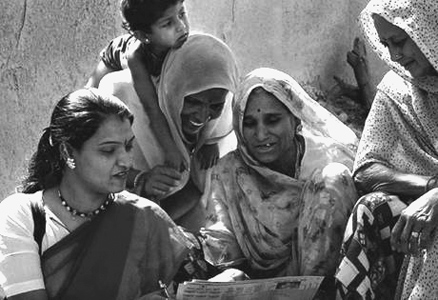
This year marks the 50th anniversary of International Literacy Day. The United Nations Educational, Scientific and Cultural Organization (UNESCO) is celebrating it under the banner “Reading the Past, Writing the Future.”
International Literacy Day 2016 – September 8th – recognizes the past five decades of national and international engagement, marking significant progress toward increased literacy rates around the world. It also addresses current challenges and looks to innovative solutions to further boost literacy in the future.
Fifty years ago, UNESCO officially proclaimed September 8th International Literacy Day to actively mobilize the international community and to promote literacy as an instrument to empower individuals, communities and societies.
“The world has changed since 1966,” says UNESCO Director-General Irina Bokova, “but our determination to provide every woman and man with the skills, capacities and opportunities to become everything they wish, in dignity and respect, remains as firm as ever. Literacy is a foundation to build a more sustainable future for all.”
International Literacy Day brings together governments, multi- and bilateral organizations, NGOs, private sectors, communities, teachers, learners and experts in the field. On this day also International Literacy Prizes are awarded to people with outstanding solutions that can drive literacy toward achieving the 2030 Education Agenda. This year the focus is on innovation.
This is the first year of implementation of the 2030 Agenda for Sustainable Development. The target is that by 2030 all youth and a substantial proportion of men and women achieve literacy and numeracy.
The main global celebration of the day will take place at UNESCO Headquarters in Paris with a two-day conference on September 8-9, the highlight of which will be the awarding of the Literacy Prizes. At the same time the Global Alliance for Literacy (GAL) will be launched, an ambitious new initiative to help all major stakeholders pull together to promote literacy as a foundation for lifelong learning.
Ms. Bokova adds, “We have seen great progress since the proclamation of International Literacy Day by UNESCO in 1966. The world’s population has increased substantially, but the number of young adults without literacy skills decreased by 25 percent between 1990 and 2015. There has been movement in enhancing women’s opportunities to acquire literacy – 43 countries have shown major improvements in gender parity….
“But not enough. There remain today 758 million adults who cannot read or write a simple sentence. Two-thirds of them are women. On the side-lines of the global village, they receive none of the benefits of globalization and suffer all its costs. These women and men are more vulnerable to ill heath, exploitation and human rights abuse. They are more likely to be unemployed and paid less. Unable to read or write, they are held back from their full potential, and whole communities are locked into vicious cycles of poverty that lay the conditions for violence and strife.
“Illiteracy remains synonymous with exclusion and poverty-we must turn this around.”
Adapted from UNESCO.
Photo: UNESCO.









Comments